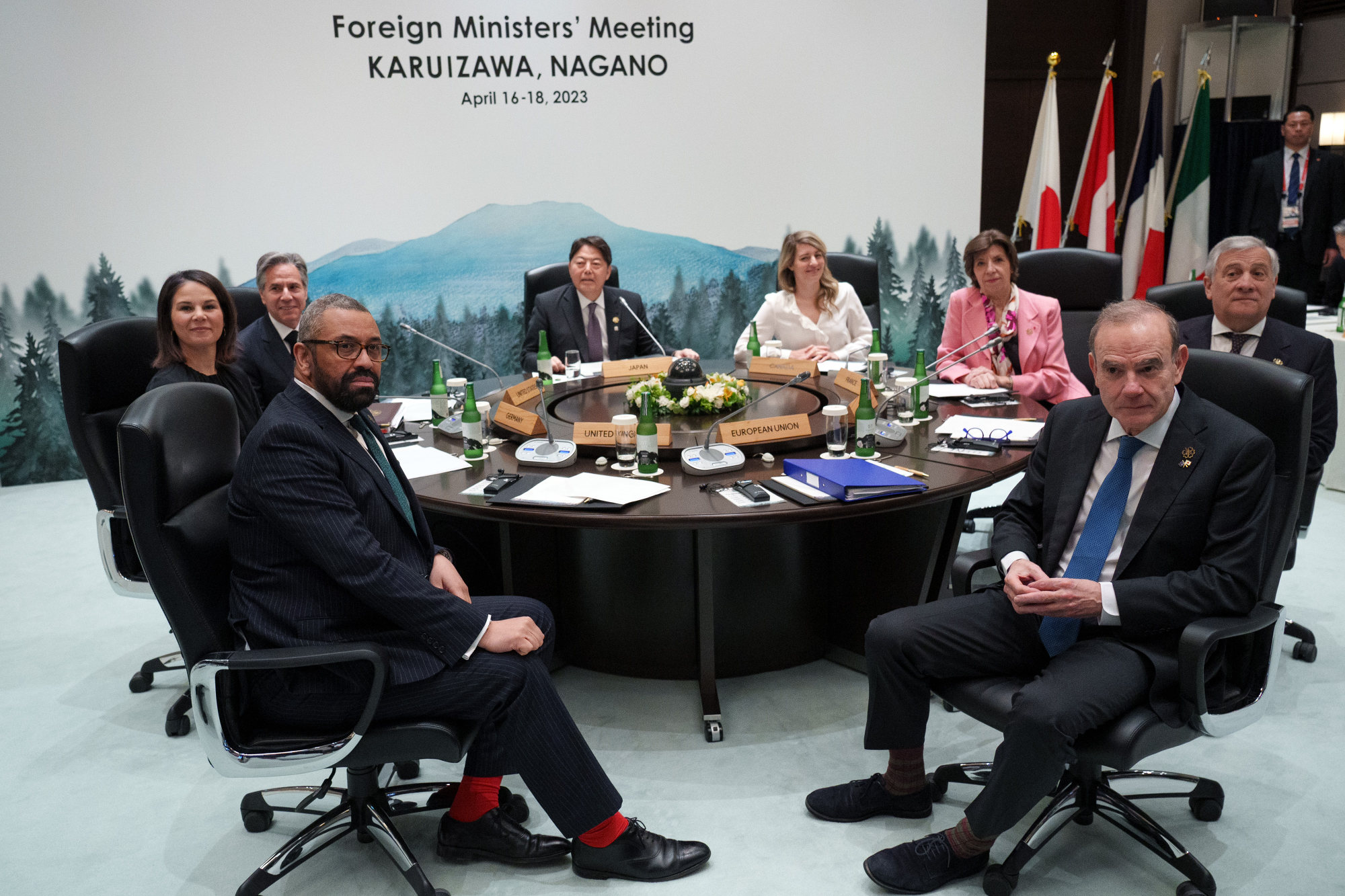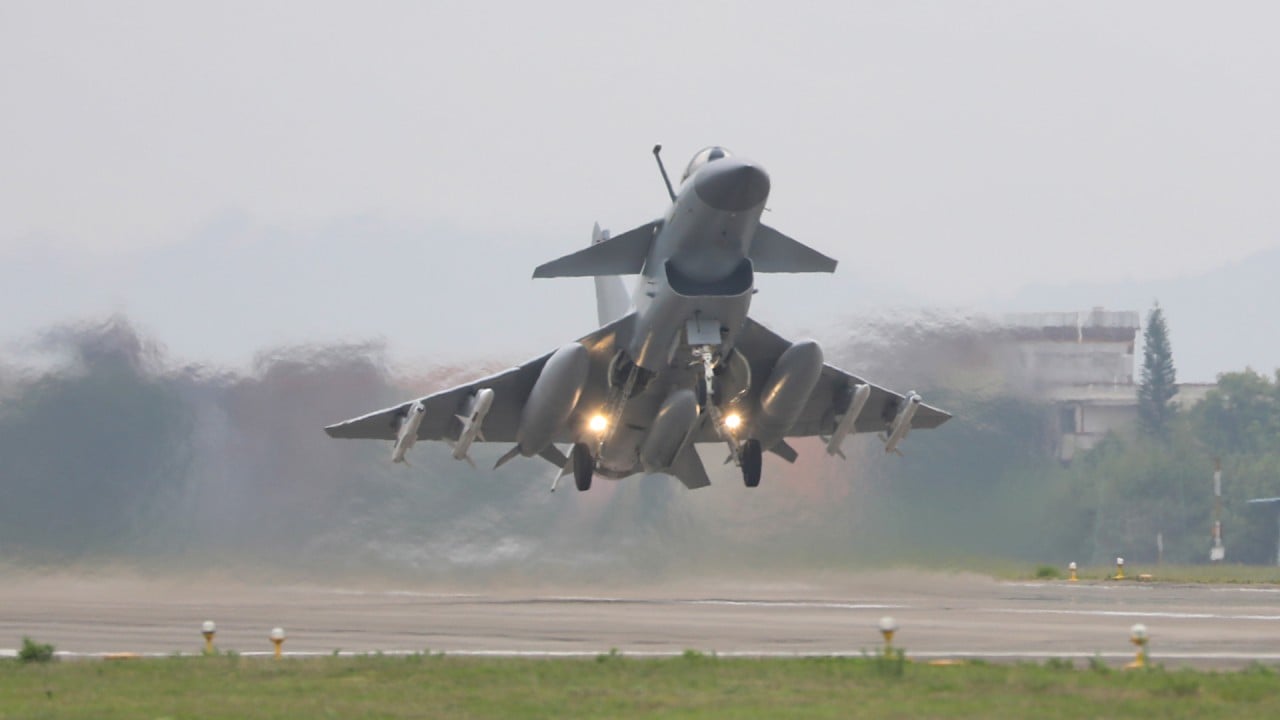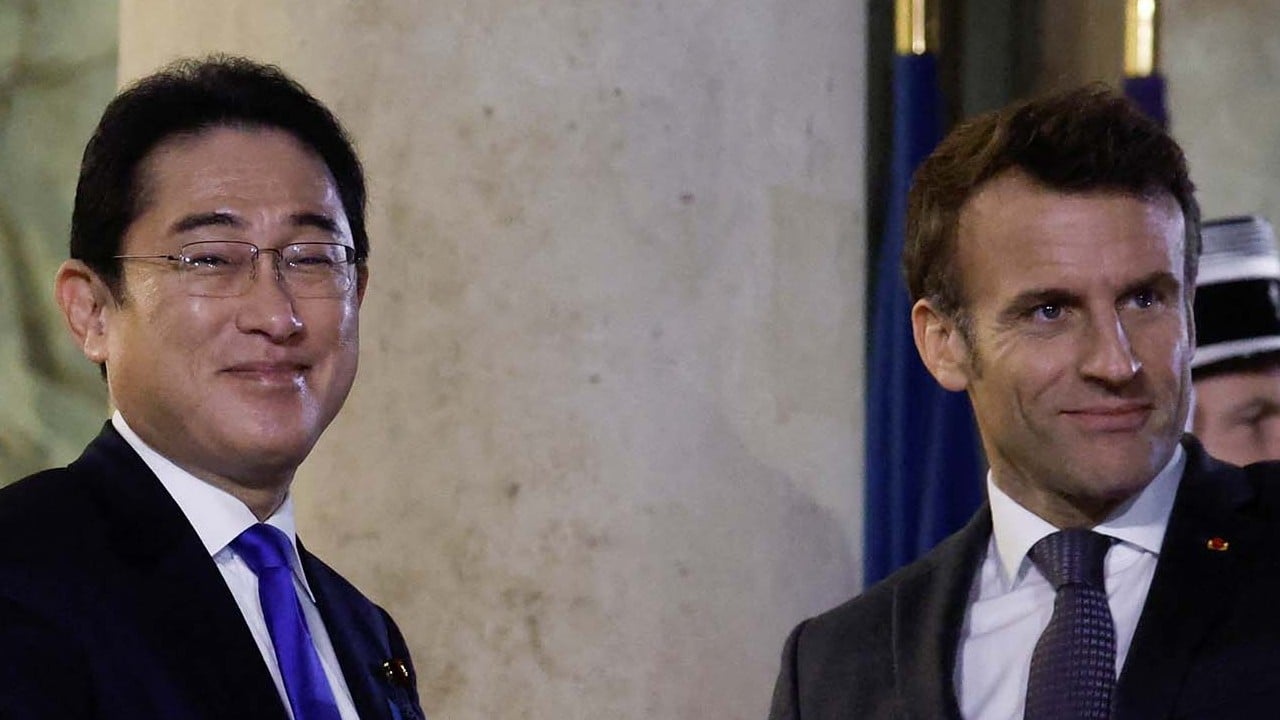
Beijing hits out at ‘arrogant’ and ‘prejudiced’ G7 statement warning against Taiwan threats
- The bloc expressed its strong opposition to attempts to ‘change the status quo by force or coercion’ after a foreign ministers’ meeting in Japan
- The Chinese foreign ministry said there were ‘sinister’ anti-China intentions behind the statement issued after a series of exercises in the Taiwan Strait
China has expressed strong opposition to an “arrogant” and “prejudiced” statement about Taiwan from the Group of Seven urging Beijing not to make threats or use force.
“We remind China of the need to uphold the purposes and principles of the [United Nations] Charter and abstain from threats, coercion, intimidation, or the use of force … We strongly oppose any unilateral attempts to change the status quo by force or coercion,” the communique stated.
The Chinese foreign ministry responded by saying Taiwan is a “sacred and inalienable” part of China’s territory and warned against “external forces” interfering in its internal affairs.
The relevant statement is full of arrogance, prejudice and sinister intentions to oppose and contain China,” foreign ministry spokesman Wang Wenbin told a regular press conference in Beijing.
What silent stand-off near Taiwan means for US-China military rivalry
“The G7 foreign ministers’ meeting ignored China’s solemn position and objective facts, grossly interfered in China’s internal affairs, and maliciously slandered and discredited China.”
China also said it had made “solemn representations” to Japan, which hosted the meeting.
But unlike the major exercise that followed former speaker Nancy Pelosi’s stopover in Taipei in August, this round of drills did not involve real missiles.
Zoon Ahmed Khan, a foreign policy analyst and research fellow at Tsinghua University’s Belt and Road Strategy Institute, said the G7 statement may have been an effort to “neutralise” Macron’s comments and reaffirm a united front.
“From the standpoint of the US and its allies collectively launching a China-containment policy, Macron has been described as tone-deaf, defiant, and dangerous; whereas an emerging voice within the Global South, and even moderate voices within Europe, believe that the West being involved in the Taiwan issue would pose a security threat, stoke polarisation, and exacerbate challenges between Asia and Europe,” said Khan.
She argued that the G7 members – Britain, Canada, France, Germany, Italy, Japan and the United States – are divided on whether to characterise China as a threat, as well as the degree to which they would like to be involved in the Taiwan issue.
“If united, the G7 continues to hold significance with regards to the China-containment strategy, but in terms of representing the vast majority of the world’s perspectives and economic or political interests, the G7’s role is increasingly diminishing,” said Khan, adding that the bloc’s “increased provocations” may prompt Southeast Asian states, who are largely integrated into the Chinese economy, to distance themselves.

“The G7’s proclamation serves merely as a flimsy fig leaf, vainly seeking to hide the stark reality so candidly voiced by President Macron of China’s growing appeal economically and diplomatically,” Andy Mok, a senior research fellow at the Centre for China and Globalisation, a non-governmental think tank in Beijing, said.
“Moreover, even the statement’s rhetorical impact is diminished by the geographical remoteness of most members and the looming, undeniable ascent of China as a full-spectrum global powerhouse.”
He also warned that Japan, the only Asian member of the bloc, “risks substantial losses” by following a strategy of confrontation.
Xu Qinduo, a political analyst at the Pangoal Institution, a Chinese think tank, agreed with the argument that Macron’s comments may have prompted the G7 ministers to clarify their stance.
“Macron’s comments have played a role, in the sense that Washington now sees an even greater urgency to present a united attitude, if not policy, with its European allies on the Taiwan question,” said Xu.
Xu also said Beijing would condemn US attempts to blame it for rising tensions, but “may also express to America’s followers that, if they don’t want a new cold war and a divided world, they may need to speak up like Macron did against the US effort to ‘accelerating’ a crisis over Taiwan”.
“The US has geopolitical interests in inflaming tension or creating a military conflict over Taiwan, but it’s not necessarily the same for European countries, with China being the largest trading partner of most states,” he added.
Beijing says envoy to Manila ‘misquoted’ on Filipino workers’ safety in Taiwan
Chong Ja Ian, a professor of political science at the National University of Singapore, said the communique was likely to reinforce China’s perception that it was being encircled and suppressed.
While Beijing may react by sending a “signal of resolve” it is likely to calibrate its short-term actions to avoid unintended escalation.
Chong suggested that Beijing would continue advancing its efforts to engage other countries around the world while upgrading its military capabilities to put pressure on states with which it has disputes.
“This is to break out of what Beijing sees as containment, encirclement, and suppression,” he said.




